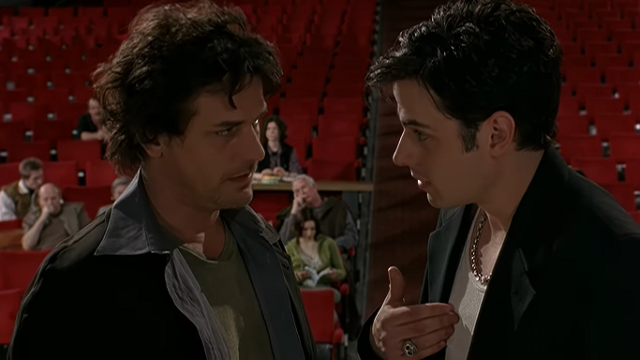Late in the first season of Slings & Arrows, the actors are rehearsing Hamlet with protagonist and mad genius Geoffrey Tennant finally stepping up to the director role; specifically, they’re rehearsing the “To be or not to be” scene. Jack is his Hamlet, and he is an American action hero who, in his own words, rarely has to keep character for more than one eighth of a page. He is enormously intimidated by the rest of the cast and the fame of the play, role, and scene. He asks Geoffrey whether Hamlet actually is crazy or if he knows Claudius and Polonius are listening in. Paul Gross can imbue anything Geoffrey says with a mystical energy, and the writers give him some mystical dialogue to say, but his actual point is extremely simple: that’s a choice for Jack to make. It doesn’t matter what he picks, but he has to pick it.
It’s a comforting approach to being an artist. One can get caught up in what the smartest answer to a storytelling problem is, but fundamentally you do the same thing as your characters – make a decision and follow it wherever it goes. Slings & Arrows has this kind of thinking all over the show, especially in the first season; the final dramatic turn is when Richard tries putting Jack at ease before the big night by telling him, effectively, that his choices don’t really matter and he’s mostly irrelevant to the whole thing so he doesn’t have to take it seriously, and of course this shakes Jack’s confidence significantly. Geoffrey’s approach is the exact opposite – that every decision everyone makes is of grave importance. This usually expresses itself as uncertainty about what the right decision is – the right staging, the right feel – but in this moment, he knows for a fact that the answer is less important than the question.

